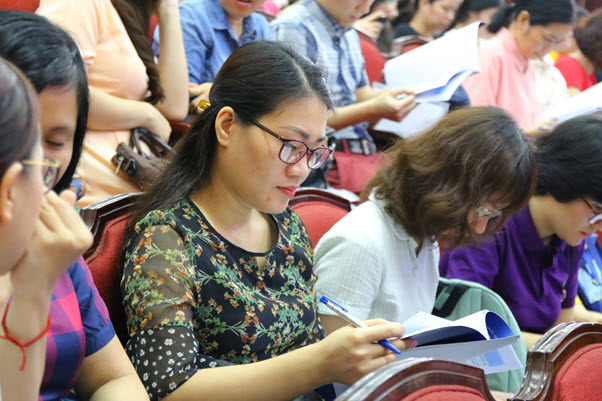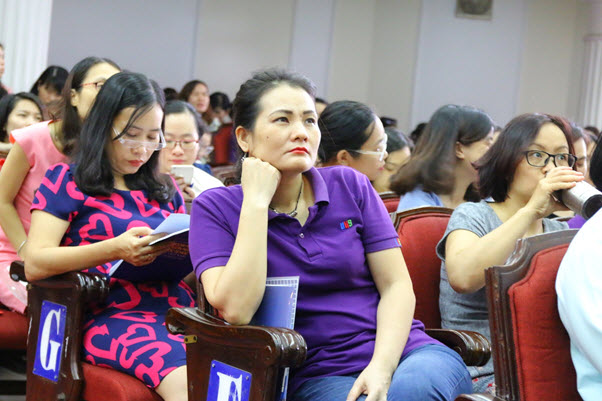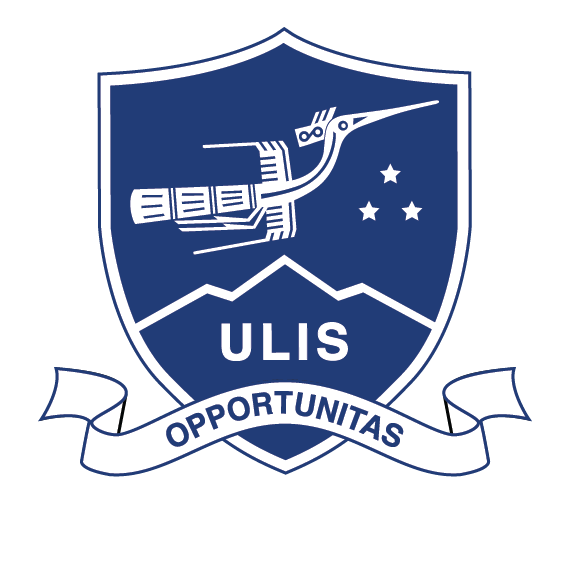2019 Annual National Conference “Linguistics, Language Teaching and International Studies in Vietnam”
On April 26th, 2019, ULIS – VNU held the 2019 Annual National Conference “Linguistics, Language Teaching and International Studies in Vietnam”. This is an annual activity organized by ULIS-VNU, the University of Foreign Language Studies – The University of Da Nang (UFLS – UDN) and University of Foreign Languages, Hue University (HUCFL).
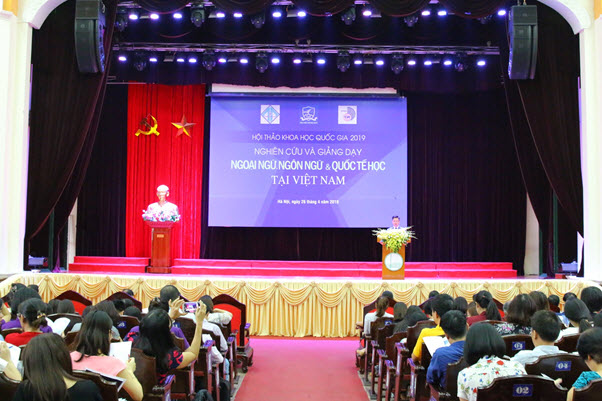
The conference was attended by representatives from three universities (ULIS, UFLS, and HUCFL), leaders of universities, institutes and training units, partnership research institutes, numerous lecturers, researchers, PhD students, graduate students all over the country.
Making his opening remarks, ULIS Vice President Lam Quang Dong was pleased to inform participants that over the past 4 years, the National Conference “Linguistics, Language Teaching and International Studies in Vietnam” had become an annual event, pulling together lecturers, researchers, and graduate students all along the country. At this year’s conference, the organizers received about 100 papers with rich contents, diverse perspectives, interesting research findings and useful experience. Emphasizing 10 major tasks of the University in the period of 2020-2025, the Vice President hoped to continue to receive the cooperation, support and contributions from scientists, lecturers and academic community throughout the country. He expected that the Journal of Foreign Studies and a wide range of international workshops and scientific activities on foreign language assessment/examination (October 16-20, 2019) will receive enthusiastic response from delegates.
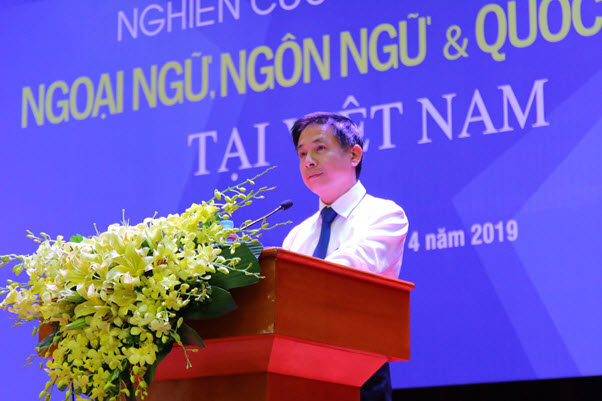
The report “Application of computational linguistics in research and language teaching” prepared by Assoc. Prof. Dr Dinh Dien, Computational Linguistics Center, University of Science – Vietnam National University, Ho Chi Minh City showed that in the 4th industrial revolution, interdisciplinary studies of linguistics all around the world have made remarkable progress, especially in Computational Linguistics – a combination of Linguistics and Computer Science to apply computational models in language processing. Under this interdisciplinary approach, language phenomena could be studied quantitatively and visually. This brings about a number of practical applications such as dictionary compilation, curriculum design, language teaching, foreign language teaching, and linguistic comparison. The report also mentioned the applications of Computational Linguistics in studying Vietnamese, comparing Vietnamese with other languages, teaching Vietnamese to foreigners and teaching foreign languages to Vietnamese. Although Assoc. Prof. Dr. Dinh Dien was grateful for the development of computer-assisted translation software, he did state that computers could not replace human in translation.
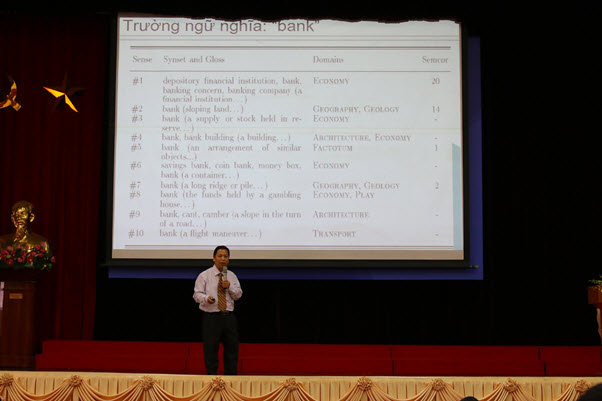
After the entire session, a discussion was held in thirteen subcommittees with the participation of all delegates and a total of sixty reports. Each report brought about featured research output along with modern perspectives as well as experiences, efforts and new research paper topics on several fields such as teaching strategies, literature, cultural and international studies, theoretical linguistic and translation studies.
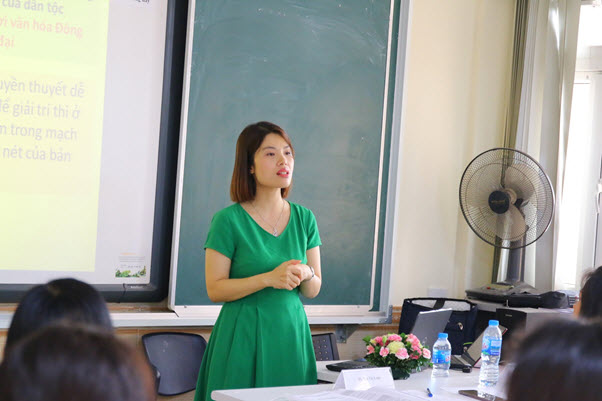
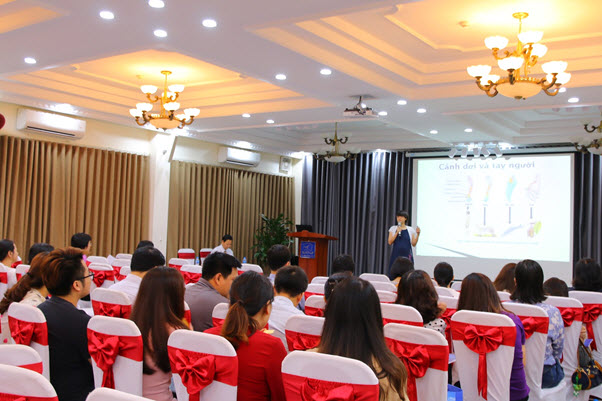
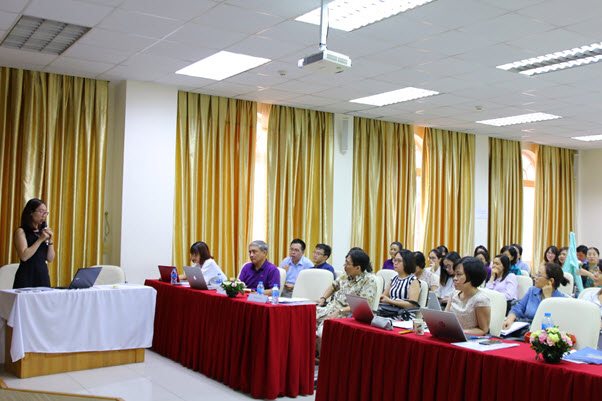
Some of the featured topics include “Factors which influence career orientation of gifted English high school students”, “The positive movement in learning written English of college students whose major is not English”, “Increased self-management in writing learning through peer-commentaries on online forums”, “Post-method foreign language teaching: A new practical technique applied in classrooms”, “Integrating games into classroom activities to improve the quality of teaching and learning”, “Foreign language strategies: The key to the successful international integration of Vietnam”, “The French and the Vietnamese gastronomy shock”, “The cultural differences between China and Western countries in terms of using chopsticks and knife and fork”, “Abstracting the language covers and expressions in the process of translation”, “The strategy to polite communication by debate programs in Vietnamese and Japanese”, etc. The follow-up discussion also proved the quality of the reports.
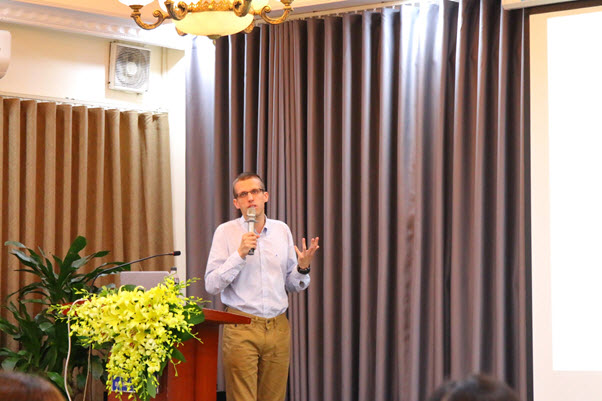
In particular, apart from reporting activities of subcommittee, there were two workshops in which Assoc. Prof. Paradowski (Poland) was the speaker on the topic “Bilingual and Multilingual education” and “Teaching pragmatic and linguistic competences of foreign languages through mother tongue (Introduction to the Interface Model)”. The two workshops received great attention from the delegates.
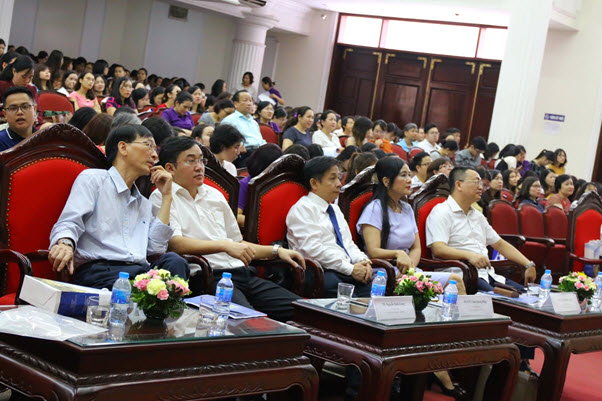
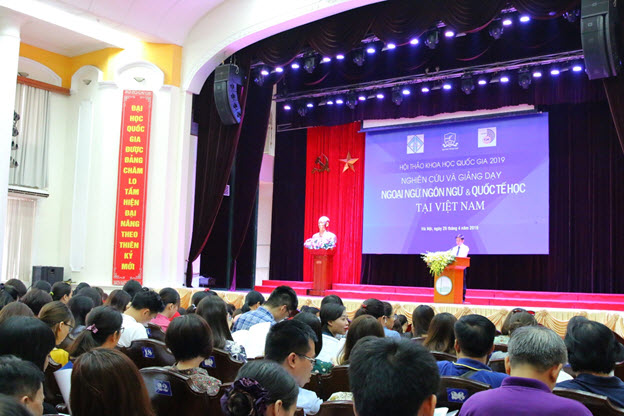
2019 National Conference “Researching and teaching foreign languages, linguistics and international studies in Vietnam” came to an end after a dynamic working day and attracted the participation of about 550 delegates.
